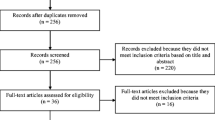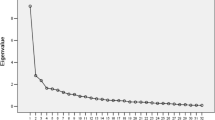Abstract
Background: This paper describes the development of the Functional Assessment of Cancer Therapy-Colorectal (FACT-C) – a questionnaire assessing quality of life concerns pertinent to colorectal cancer patients. This self-report instrument combines specific concerns related to colorectal cancer with concerns that are common to all cancer patients as assessed with the FACT-General (FACT-G). Method: Three separate and distinct validation samples were used with different ethnic and stage of disease compositions. Results: Results suggest that the FACT-C is a reliable and valid measure in both its English and Spanish language versions. Specifically, the FACT-C evidenced good internal consistency reliability and concurrent validity, as well as an ability to distinguish between groups based on functional status and extent of disease. The FACT-C was also found to be sensitive to changes in functional status. Colorectal cancer-specific items form the Colorectal Cancer Subscale (CCS) which was found to have adequate convergent and divergent validity. Internal consistency was adequate in most samples. In addition, the CCS was able to distinguish among groups that differed in functional status and was sensitive to change in functional status. Conclusion: It is recommended that the entire FACT-C (rather than simply the CCS) be used when studying patients with colorectal cancer in order to provide a comprehensive assessment of quality of life. Recommendations are offered concerning the appropriate use of these measures in clinical research and directions for future research with colorectal cancer patients.
Similar content being viewed by others
References
Boring CC, Squires TS, Tong T, Montgomery S. Cancer Statistics, 1994. California Cancer J Clinicians 1994; 44: 7±26.
American Cancer Society Cancer Rates and Risks. Department of Health and Human Services, Public Health Service, National Institutes of Health, National Cancer Institute 1992, pp. 46±47.
Moertel CG. Chemotherapy for colorectal cancer. The New Engl J Med 1994; 330: 1136±1142.
Sprangers MAG, Taal BG, Aaronson NK, te Velde A. Quality of life in colorectal cancer. Dis-orders of the Colon and Rectum 1995; April: 361±369.
Lewis WG, Holdsworth PJ, Stephenson BM, Finan PJ, Johnston D. Role of the rectum in the physiological and clinical results of coloanal and colorectal anasto-mosis after anterior resection for rectal carcinoma. Brit J Surg 1992; 79: 1082±1086.
Williams NS, Johnston D. The quality of life after rectal excision for low rectal cancer. Brit J Surg 1994; 70: 460±462.
Rowbotham JL. Advances in rehabilitation of stoma patients. Cancer 1975; 36: 702±704.
Santangelo ML, Romano G, Sassaroli C. Sexual function after resection for rectal cancer. Amer J Surg 1987; 154: 502±504.
Devlin HB, Plant JA, Griffn M. Aftermath of surgery for anorectal cancer. Brit Med J 1971; 3: 413±418.
Fain SN, Patin S, Morgenstern L. Use of mechanical apparatus in low colorectal anastomosis. Archives Surg 1975; 110: 1079±1082.
Heald RJ. Towards fewer colostomies ± the impact of circular stapling devices on the surgery of rectal can-cer in a district hospital, Brit J Surg 1980; 60: 198±200.
Cella DF, Tulsky DS, Gray G, Sara®an B, Linn E, Bonomi A, Silberman M et al. The Functional As-sessment of Cancer Therapy scale: Development and validation of the general measure. J Clin Oncol 1993; 11: 570±579.
Yellen SB, Cella DF, Webster K, Blendowski C, Ka-plan E. Measuring fatigue and other anemia-related symptoms with the Functional Assessment of Cancer Therapy (FACT) measurement system. J Pain and Symptom Manag 1997; 13: 63±74.
Cella DF, Bonomi AE, Leslie WT, Von Roenn J, Tchekmedyian NS. Quality of life and nutritional well-being: Measurement and relationship. Oncology 1993; 7: 105±111.
Brady MJ, Cella DF, Mo F, Bonomi AE, Tulsky DS, Lloyd SR et al. Reliability and validity of the Func-tional Assessment of Cancer Therapy ± Breast quality-of-life instrument. J Clin Oncol 1997; 15: 974±986.
D'Antonio L, Zimmerman GJ, Cella DF, Long SA. Quality of life and functional status measures in patients with head and neck cancer. Archives of Otalyrngol ± Head and Neck Surg 1996; 122: 482±487.
Cella DF, Bonomi AE, Lloyd SR, Tulsky DS, Kaplan E, Bonomi P. Reliability and validity of the Functional Assessment of Cancer Therapy ± Lung (FACT-L) qual-ity of life instrument. Lung Cancer 1995; 12: 199±220.
Esper P, Mo F, Chodak G, Sinner M, Cella D, Pienta KJ. Measuring quality of life in men with prostate cancer using the Functional Assessment of Cancer Therapy ± Prostate (FACT-P) instrument. Urology, in press.
Cella DF. F.A.C.T. manual: Manual for the Func-tional Assessment of Cancer Therapy (FACT) scales and the Functional Assessment of HIV Infection (FAHI) scale. Chicago: Rush-Presbyterian-St. Luke's Medical Center. 1994.
Cella DF, Bonomi AE. Measuring quality of life: 1995 update. Oncology Nov. 1995.
Cella DF, Bonomi AE. The Functional Assessment of Cancer Therapy (FACT) and Functional Assessment of HIV Infection (FAHI) quality of life measurement system. In: Spilker B (ed) Quality of life and phar-macoeconomics in clinical trials 2nd ed. Philadelphia: Lippincott-Raven Publishers, 1996.
Cella D, Hernandez L, Bonomi AE, Corona M, Va-quero M, Shiomoto G et al. Spanish language trans-lation and initial validation of the Functional Assessment of Cancer Therapy (FACT) quality of life instrument. Unpublished manuscript, 1996.
Bonomi AE, Cella DF, Hahn EA, Bjordal K, Sperner B, Gangeri L et al. Multilingual translation of the Functional Assessment of Cancer Therapy (FACT) quality of life measurement system. Qual Life Res 1996; 5: 309±320.
Brislin R. Back-translation for cross-cultural research. J Cross-Cultural Psychol 1970; 1: 185±216.
Cella DF, Jacobsen PB, Orav EJ, Holland JC, Silberfarb PM, Ra¯a S. A brief POMS measure of distress for cancer patients. J Chronic Dis 1987; 40: 939±942.
Schipper H, Clinch J, McMurray A, Levitt M. Mea-suring the quality of life of cancer patients: The Functional Living Index ± Cancer: Development and validation. J Clin Oncol 1984; 2: 472±483.
Zubrod CG, Schneiderman M, Frei E, Brindley C, Gold GL, Schnider B, Orieto et al. Appraisal of methods for the study of chemotherapy in cancer in man: Comparative therapeutic trial of nitrogen mus-tard and triethylene thiophosphoramide. J Chronic Dis 1960; 11: 7±33.
McNair DM, Lorr M, Droppleman LF. EdITS manual for the Pro®le of Mood States: Revised 1992. San Diego, CA: EdITS/Educational and Industrial Testing Service, 1992.
Strahan R, Gerbasi KC. Short homogenous versions of the Marlowe-Crowne Social Desirability Scale. J Clin Psychol 1972; 28: 191±193.
SAS Software Release 6.10, SAS Institute Inc, Carey, NC, 1994.
Cella DF, Lloyd SR, Wright BD. Cross-cultural instrument equating: Current research and future di-rections. In: Spilker B (ed) Quality of life and phar-macoeconomics in clinical trials, 2nd ed. Philadelphia: Lippincott-Raven Publishers, 1996.
Diener E, Sandvik E, Pavot W, Gallagher D. Response artifacts in the measurement of subjective well-being. Social Indicators Res 1991; 24: 35±56.
Hahn EA, Cella D. Unbiased quality of life measure-ment across literacy levels and mode of administration. Quali Life Res 1997; 6: 654.
Author information
Authors and Affiliations
Rights and permissions
About this article
Cite this article
Ward, W.L., Hahn, E.A., Mo, F. et al. Reliability and validity of the Functional Assessment of Cancer Therapy-Colorectal (FACT-C) quality of life instrument. Qual Life Res 8, 181–195 (1999). https://doi.org/10.1023/A:1008821826499
Issue Date:
DOI: https://doi.org/10.1023/A:1008821826499




